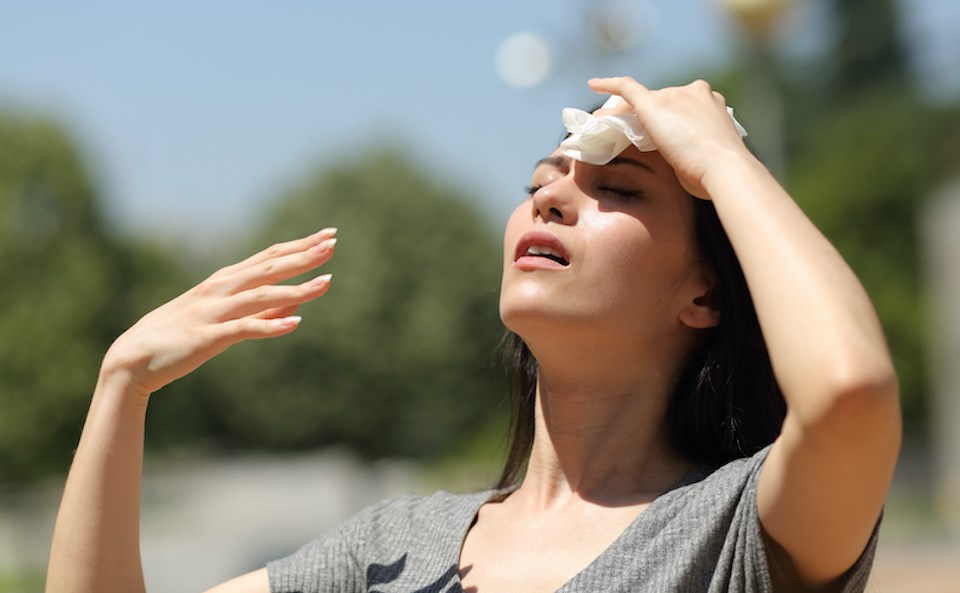While Metro Vancouverites should brace for unseasonably hot weather this weekend, a heat warning might not be issued for the region.
Environment Canada isn't expecting sustained heat that will meet its criterion to issue a warning -- but people should take the forecast seriously.
The soaring temperatures are particularly dangerous for young children and elderly people and can cause heat-related illnesses, such as heat stroke and heat rash.
Meteorologist Bobby Sekhon said temperatures will continue to climb this week, building up to a high of 26 C on the coast and 34 C on Mother's Day (May 14).
"These temperatures are about 16 degrees above normal," he told V.I.A.
In Abbotsford, the current record for May 14 is 32.4 C and the forecast includes a sizzling 34 C high. Similarly, Vancouver is expected to see a 26 C high Sunday, which would break the 25.6 C record.
And while locals are advised to prepare for the hot weather, Environment Canada won't issue a heat warning if the forecast stays its course.
Metro Vancouver weather forecast doesn't include "heat dome" conditions
"The heat warning criteria is two days of 29 C temperatures and two overnight lows of 16 C," Sekhon noted, adding that the expected temperatures are "getting pretty close."
While this will be the first significantly hot stretch of the season, people shouldn't expect a catastrophic heat event, such as the heat dome in 2021. That heat event took place toward the end of June, which has the "longest days of the year," he explained.
Temperatures will still climb into the 30s at the hottest part of the day during this event but nighttime temperatures are expected to offer a respite, with temperatures dropping down to the mid-teens.
With this in mind, Sekhon underscored that these temperatures are "pretty hot for this time of year" and people should plan ahead for the heat.
"It's best prepared."
Prepared BC offers multilingual downloadable guides and resources to help British Columbians prepare for extreme heat, wildfires, floods and other emergencies.
If it is not safe for you to stay at home, consider staying with friends or family that have air conditioning or cooler spaces. Alternatively, consider staying in a public space to get cool, such as a library, movie theatre, religious centre, shaded place in a park, shopping mall or community centre.
Despite the anticipated hot weather, the City of Vancouver told V.I.A. Tuesday that it won't be activating cooling centres unless Environment Canada issues a heat warning for the region. Some people may find refuge in libraries or other air-conditioned public venues.
However, "members of the public are welcome to seek shade at any of the city's other community centres, at weather-protected plazas and under trees, umbrellas and awnings at parks, beaches and pools," a city spokesperson said. The city's parks with splash pads will have the water turned on a week early to help locals keep cool.
As of 4 p.m., Environment Canada has issued a special weather statement.
Tips to stay cool during the extreme heat from the Preparedness BC
In homes without air conditioning, heat builds indoors over the course of a few days. It may stay hotter inside than outside overnight. Without air conditioning, the longer the heat lasts, the more dangerous it becomes. Take the following steps to keep yourself and members of your household safe:
- If you have air conditioning, turn it on. It does not need to be going full strength to help you stay safe
- If you have air conditioning, and vulnerable friends and family do not, bring them to your home
- If you do not have air conditioning, move to your pre-identified alternate location with air conditioning or cooler spaces
- Sleep in the coolest part of the residence. Outdoor temperatures are usually lower than indoor temperatures overnight, so consider sleeping outside if you can safely do so
- Sleep with a wet sheet or in a wet shirt
- Take cool baths or showers to draw heat from your body
- Drink plenty of water, regardless of whether you feel thirsty. Be aware that sugary or alcoholic drinks cause dehydration
- If you are taking medication or have a health condition, ask your doctor or pharmacist if it increases your health risk in the heat and follow their recommendation
- If your doctor limits the amount you drink or has you on water pills, ask how much you should drink while the weather is hot


